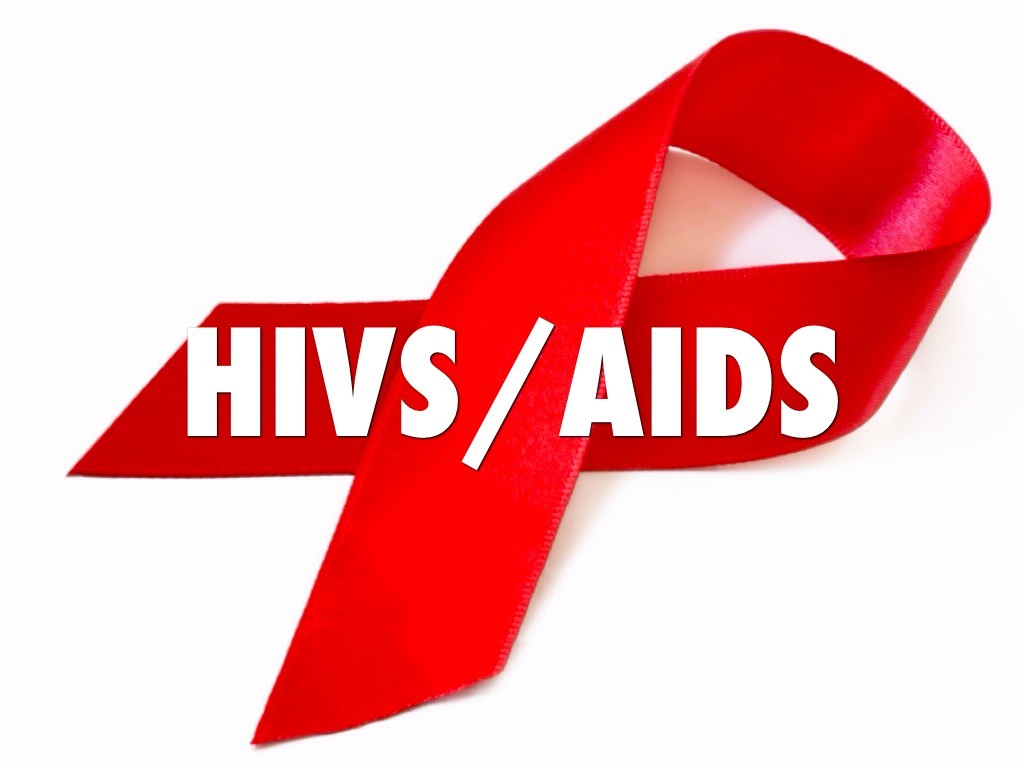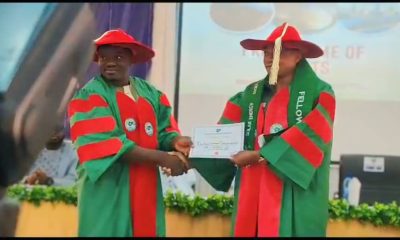Health
Preventive management, panacea for public infrastructure decay, carnages

With tears rolling down his cheeks, a young medical Doctor lamented the preventable death of his female colleague: “On many occasions, the elevator had stopped while we were inside it.
“We report every time. The elevator is supposed to carry 630kg maximum, that’s eight people.
“Once you open the elevator and see two people already, you just have to wait for the next batch.
“It was faulty and they knew about it.
That’s why we’re not going to take this. Dr Vwaire Diasso was a very diligent house officer. She was very hardworking”.Dr Diaso lost her life on Aug. 1, in the faulty elevator that crashed from the 10th floor of the General Hospital, Odan, Lagos Island just two weeks to complete her housemanship.
She reportedly entered the elevator at the Doctors’ quarters, to collect her food from a dispatcher who was waiting for her downstairs.
Stakeholders have observed that the tragic death of Diasso, like many carnages, witnessed on the nation’s deplorable highways, as well as hundreds of casualties of collapsed buildings are preventable and avoidable.
They noted that, for decades, Nigeria has been in throes of collapsed buildings and deplorable highways resulting in carnages.
According to a recent report by the Building Collapse Prevention Guild, Nigeria witnessed a total of 553 building collapses between 1974 and ending on April 13, 2023.
The report, made available to newsmen, indicated that Lagos state had recorded a high collapse with over 326 buildings caving in the last 49 years.
It would also be noted that the most recent of the preventable tragedy was the Aug. 14 collapse of the iconic Zaria Central Mosque, during Friday prayers, which left no fewer than 12 worshippers dead and many injured
Although full investigations had been launched to ascertain the cause(s) of the collapse of the Mosque constructed in the 1830s, but, the Emir of the area told newsmen that a crack had been discovered in one of the walls.
Some of the stakeholders interviewed during a survey conducted by the News Agency of Nigeria (NAN), noted that facilities management and maintenance were not being practiced the right way in Nigeria .
Dr Samuel Imonikhe, a lecturer in the Department of Building, School of Environment Studies, Auchi Polytechnic, said Nigeria practiced corrective maintenance culture, which allows a total degeneration of infrastructure before undertaking repairs.
The practice, according to him, made the cost of maintenance almost the same as the cost of constructing a new facility.
He underscored the need for the country and construction experts to adopt preventive maintenance culture – a regular routine inspection of infrastructure with the intention of noticing minor issues and fixing them before major ones develop-.
According to him, facility management must be built into every project from the beginning to ensure adequate maintenance plans for facilities throughout their lifespan.
“Why should we allow our roads, buildings and other facilities to degenerate to such bad levels before maintenance?” he retorted.
Imonikhe also called for synergy among built environment professionals to guarantee quality assurance in the construction sector to curb infrastructure decay and building collapse.
To further expose the negative impacts of the corrective maintenance culture being practiced in the country, NAN beamed its torchlight to some iconic public infrastructure across the country, many of which are in deplorable state.
Example is Muda Lawal Stadium in Abeokuta, the first in Ogun state, where a number of world-class soccer stars had played football, but presently in sorry state due to many years of neglect.
Formerly known as Asero Stadium, the sporting facility was renamed in 1992 after Nigeria’s late legendary midfielder, Mudashiru Babatunde a.k.a. Muda Lawal who guided the country to its first African Nations Cup title, at the 1980 African Nations Cup.
The multi-sports facility with estimated 20,000-capacity used to be the home of Abiola Babes in the 80s, where many Nigeria’s soccer stars, Friday Ekpo, Yisa Shofoluwe, Toyin Ayinla, Raymond King among others, played their games.
Unfortunately, a large portion of the abandoned stadium sitting on large expanse of land has been turned into a park for heavy duty vehicles by the state government
Apart from weeds, bushes and thorns within the main complex, the football pitch has become bald and undulating, while the running tracks have been washed away.
A worker of the Ogun Sports Council, the body in charge of the facility, who spoke on condition of anonymity, described the situation as “unfortunate.”
“It is unfortunate that the stadium which could have served as a platform for youths to exhibit their talents and for us to harness them is in a state of ruin and they (youths) have been joining bad gangs,” he said.
NAN visit to the tomb of the late Prime Minister, Abubakar Tafawa Balewa in Bauchi, further buttressed the wrong maintenance approach adopted by the nation.
The iconic infrastructure which supposed to be tourists destination and money spinner for the sector is also in bad shape
The grand edifice which contained the remains of Balewa, the first Prime Minister of newly independent Nigeria needed the attention of the relevant authorities.
A senior tour guide, at the mausoleum who pleaded anonymity said: “the major challenge here is that the roof to the tomb is leaking anytime there is rainfall and the leakage is right from the gate up to the grave site.
“We are in collaboration with the National Commission for Museums and Monuments.and we have written a letter stating the problem to them as well as the Bauchi State Government.
“We hope that the parties will join hands to find lasting solutions to the problem’’.
The guide, however, noted that there was strong collaboration between the management of the tomb and the security agencies in the state on effective protection of the structure against vandalism.
In Ibadan, Oyo state, Cocoa House, the first skyscraper in Nigeria and tropical Africa, is gradually losing its glory as a result of inadequate maintenance.
The 23-storey building built with Cocoa proceeds in 1965 by the government of the defunct Western Region led by Chief Obafemi Awolowo, Ladoke Akintola, was one of the most visible and enduring legacies of the early political leaders in the South-West.
NAN recalled that in Jan. 2021 one person was killed while three others were injured when the Cocoa House elevator suffered mechanical failure and collapsed.
It was gathered then, that the faulty elevator of the multistory building crashed while four technicians were working to restore it
When NAN visited the legacy building on Tuesday, it was discovered that only three of the four lifts in the skyscraper were functioning.
A tenant who craved anonymity said that the security closed circuit cameras in the building did not cover every floor in the building.
The occupant added that the fire fighting pick up van provided by the Oodua investment company,manager of the facility, could not do much in case of fire incident.
Prof. Oyesoji Aremu, Chairman Osun State Education Summit said the decline of Cocoa house legacy began when the edifice got burnt in 1985.
According to him, the administration then, tried to salvage the building from whatever remained of the ruins to avoid a total wreck but after that it did not regain its first glory.
“This can be said in terms of beehives of activities that it was once noted for as well as the ambience and aura that people look out for..
“There are no more activities that we used to have at Cocoa house in the past.
“Although people still have their businesses and shops there, but it is no longer attracting the kind of attention it used to attract,” he said.
Of equal concerns is the recent report that some road fittings installed on the Second Niger Bridge, commissioned by the immediate past President, Muhammadu Buhari in May last year, were stolen by suspected vandals.
The 1.6km bridge linking Asaba, Delta State with Onitsha, Anambra State and other South-East states which was named after President Buhari has been described as a national asset
Reacting to the sad development the Commissioner of Police in Anambra, Aderemi Adeoye told NAN that his Command in collaboration with the Delta state command had begun 24-hour surveillance of the bridge.
He said that the patrol would be both mobile and static, stating that the operation has been scheduled among divisions to cover night and day surveillance.
The steps by the Police boss had, however, attracted backlash from stakeholders who believed that security agents should be proactive and not reactive in their approaches to safety and protection of public facilities.
The stakeholders blamed the security agencies for the second Niger Bridge vandalism as well as unabated theft of gully inlets, manhole covers and other flood containment infrastructure in cities, particularly, the Federal Capital Territory.
NAN observed that despite their weight, manhole covers were being stolen in the FCT, by scavengers and unpatriotic individual leaving the holes open and posing a grave danger to unsuspecting motorists and pedestrians.
The stakeholders called on the Police to provide constant surveillance security and close circuit cameras against theft of manhole covers and other public infrastructure.
They also called for collaborative support of residents by reporting any unusual or suspicious observations to relevant security agencies for prompt action in order to forestall the ugly situation.
The stakeholders also recommended stiffer penalties, including death sentence, for culprits of public infrastructure theft and vandalism.
Specifically, they argued that rail track vandalism, should be treated as a capital offense because its consequences could be fatal resulting in death of passengers.
Health
Expert Advocates For Elimination of Mother-to-Child Transmission of HIV Through HIV Self Testing.

From Attah Ede, Makurdi
Eliminating mother-to-child transmission of HIV in Nigeria is an achievable goal, but it requires innovative approaches that can address the unique barriers faced by women in underserved communities.
An expert on health related matters, Dr Godwin Emmanuel stated while interacting with newsmen as part of activities commemorating the just concluded World Aids Day in Makurdi, the Benue State capital.
Dr.
Emmanuel who is the Managing Partner/Impact Officer of MOZUK Future Solutions Limited, stated that the World AIDS Day have come and gone, yet Nigeria government must not fail to examine some of the gaps that must be urgently bridged as a nation.He explained that each year, thousands of children are born with HIV, largely due to inadequate access to testing and treatment during pregnancy, disclosing that the Joint United Nations Programme on HIV/AIDS (UNAIDS) estimates that Nigeria contributes about 22% of global paediatric HIV cases which indicates the urgent need for innovative approaches to curb MTCT.
“This brings me to a recent study in Lagos and Kano which demonstrated how HIV self-testing kits offer a practical, effective, and scalable solution to our MTCT challenges.
“The study interrogates an initiative seeking to integrate HIV Self-Test (HIVST) kits into TBA services as part of a broader strategy to eliminate MTCT.
“The intervention targeted underserved communities where healthcare access is limited, leveraging the trust and accessibility of TBAs to distribute self-testing kits and provide essential counselling”.
According to him, the study, led by Dr. Toriola Adebayo of Lagos State University Teaching Hospital and Dr. Usman Bashir of Aminu Kano Teaching Hospital, articulated the role of local expertise in advancing healthcare solutions tailored to community needs.
“In this intervention, 182 TBA clinics across three local government areas (LGAs) in Lagos and Kano States were equipped with HIVST kits. TBAs received extensive training on the administration of the tests, pre- and post-test counselling, and linkage to care for those who tested positive.
“Among the 1,982 pregnant women enrolled in the study, pre-intervention testing rates were markedly low, with just 60% in Lagos and 38% in Kano having ever been tested for HIV. After the introduction of HIVST, testing uptake surged, with all participants voluntarily using the kits during antenatal visits.
“The results were promising:
HIV Positivity Rate: An overall positivity rate of 0.8% was recorded, with slightly higher rates in Lagos (1.1%) compared to Kano (0.8%).
“First-Time Testers: Remarkably, 80% of those who tested positive were undergoing HIV testing for the first time.
Linkage to Care: All HIV-positive individuals were successfully linked to ART services, demonstrating the effectiveness of the TBA-led model in bridging gaps in healthcare access.
“The success of this initiative exemplifies how HIVST can become a cornerstone of affirmative action against paediatric HIV infections, which was also a critical focus of World AIDS Day observances.
“As evidenced by the success of the Lagos and Kano initiative, when confidentiality, stigma reduction, and leveraging trusted community figures like TBAs are prioritised, HIVST has the potential to transform PMTCT efforts across Nigeria.
“This is even more so with sustained investment, community buy-in, and political will. This can move us closer to a future where no child is born with HIV and every mother has the opportunity to live a healthy, fulfilling life”, Dr. Emmanuel alluded.
He further revealed that HIV self-testing kits offer a simple, private, and effective means of determining one’s HIV status, adding that the kits allow individuals to test themselves using a saliva sample or a small drop of blood, with results available in minutes.
Highlighting the importance, the health, said the convenience and confidentiality of this method are particularly appealing to those who might avoid traditional testing due to stigma or fear of disclosure.
He stated that the fear of being judged or ostracised often prevents pregnant women from seeking HIV testing, stressing that HIVST kits allow individuals to test in the comfort of their homes or a private setting, without fear of disclosure. This is particularly crucial for pregnant women, who may face compounded stigma if diagnosed with HIV.
“Increased Testing Uptake as demonstrated shown the intervention in Lagos and Kano demonstrates that when provided with confidential and convenient testing options, more women are willing to know their HIV status. Early diagnosis is key to initiating ART, which can reduce the risk of MTCT to less than 1%.
Health
NAFDAC Supports Herbal Medicine, says Must go Through Clinical Trials

Prof. Mojisola Adeyeye, the Director-General, National Agency for Food and Drug Administration and Control (NAFDAC), says she supports herbal medicine production in the country.
She said this on a Forum in Abuja.
She, however, explained that for NAFDAC to accommodate herbal medicine as part of its regulated products, such herbal preparation must go through clinical trials.
She disclosed that the major challenge to herbal medicine practitioners is how to secure resources to finance clinical trial for their products, which she said cost a lot of money because it is a major aspect in medicine.
She added that “I believe in natural medicine, I was brought up with it, like the Agbo that we were taking and it was working.
“Herbal medicine or natural medicine work, before I came back home from the United States, I started a research on natural medicine for the cure of sickle cell, my niece who is a sickler got on it and her episodes decreased by 70 to 80 per cent.”
She explained that the agency gives approval for natural medicines once proven it is not toxic, and they have been used and tested before.
“We approve them for two years and then they can renew if they do clinical trial because it is something we are not used to in Nigeria.
“China supports many of these herbal practitioners.”
The director-general also spoke about using fruits and vegetables as medicine to cure some illnesses, adding that some of these fruits contain antioxidants that prevent cancer. (NAN)
Health
NCDC Calms Fears over XEC COVID-19 Variant, Urges Continued Vigilance

The Nigeria Centre for Disease Control and Prevention (NCDC) has allayed public fears over the detection of the SARS-CoV-2 XEC subvariant globally.
The Director-General of the centre, Dr Jide Idris, did this in a public advisory issued on Saturday night in Abuja, made available to newsmen.
Idris reassured Nigerians that the variant, though identified in 29 countries, has not been detected in Nigeria.
He said that the XEC subvariant, a descendant of the Omicron JN.
1 lineage, was currently classified as a Variant Under Monitoring (VUM).According to him, this means that it is being closely observed for potential concerns but does not yet pose significant risk.
“The XEC sub-variant has been reported in Europe, Asia, North America, and Africa, with Botswana being the only African country to record cases so far.
“While the sub-variant exhibits higher transmissibility, there is no evidence of increased disease severity,” he said.
The NCDC boss said that Nigeria had been monitoring the JN.1 variant, classified as a Variant of Interest (VOI), which has been present in the country since January.
He assured Nigerians that the National COVID-19 Technical Working Group was conducting continuous surveillance and data analysis.
Additionally, he said that a dynamic risk assessment was being organised to strengthen the country’s preparedness and response capabilities.
He urged health facilities nationwide to ramp up COVID-19 testing and forward positive samples to accredited laboratories for genomic sequencing.
He encouraged the public to maintain vigilance and adhere to basic health protocols, including handwashing, mask usage in crowded spaces, and ensuring proper ventilation indoors.
He advised vulnerable groups, such as the elderly and those with underlying health conditions, to remain cautious.
“COVID-19 remains a significant risk, particularly for the elderly, individuals undergoing cancer treatment, organ transplant recipients, and those with suppressed immune systems.
“We urge Nigerians to get vaccinated and receive booster doses as recommended,” he said.
The director-general also called on state governments to enhance public health infrastructure, provide resources for improved surveillance and diagnostics, and promote public health education.
He reaffirmed the agency’s commitment to providing Nigerians with accurate and timely information on the evolving COVID-19 situation globally.
He urged citizens to avoid misinformation and rely on verified updates from its platforms.
“For assistance, the public is encouraged to contact the NCDC via its toll-free number 6232 or, WhatsApp: 07087110839, Twitter: @NCDCGov and Facebook: @NCDCgov,” he said.
Report says that the XEC variant of COVID-19 is a recombinant strain, meaning it results from the combination of genetic material from two or more existing variants of the SARS-CoV-2 virus.
Recombinant variants can emerge when different strains infect the same individual and exchange genetic material during replication.
This process may lead to new variants with unique properties, such as increased transmissibility, virulence, or resistance to immunity.
While thousands of mutations have been tracked globally, only a few variants are monitored for public health significance.
Nigeria’s NCDC and global health organizations like the WHO continue genomic surveillance to monitor and respond to emerging variants.(NAN)




















